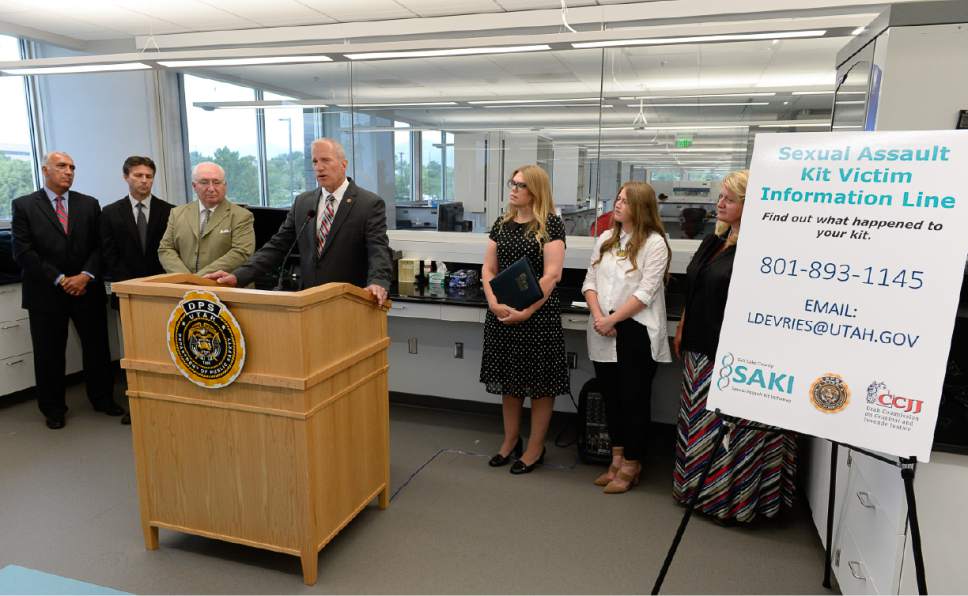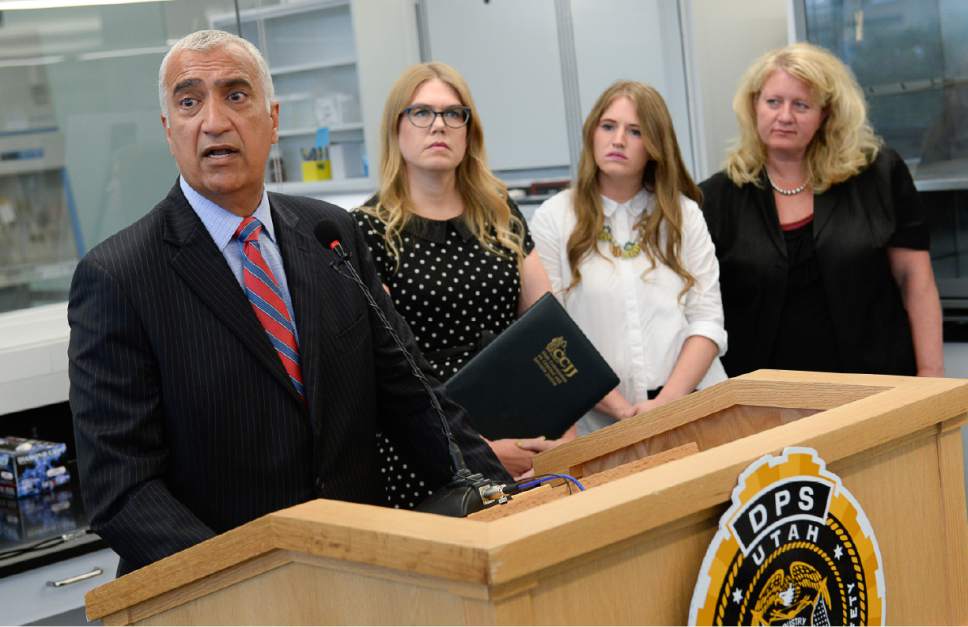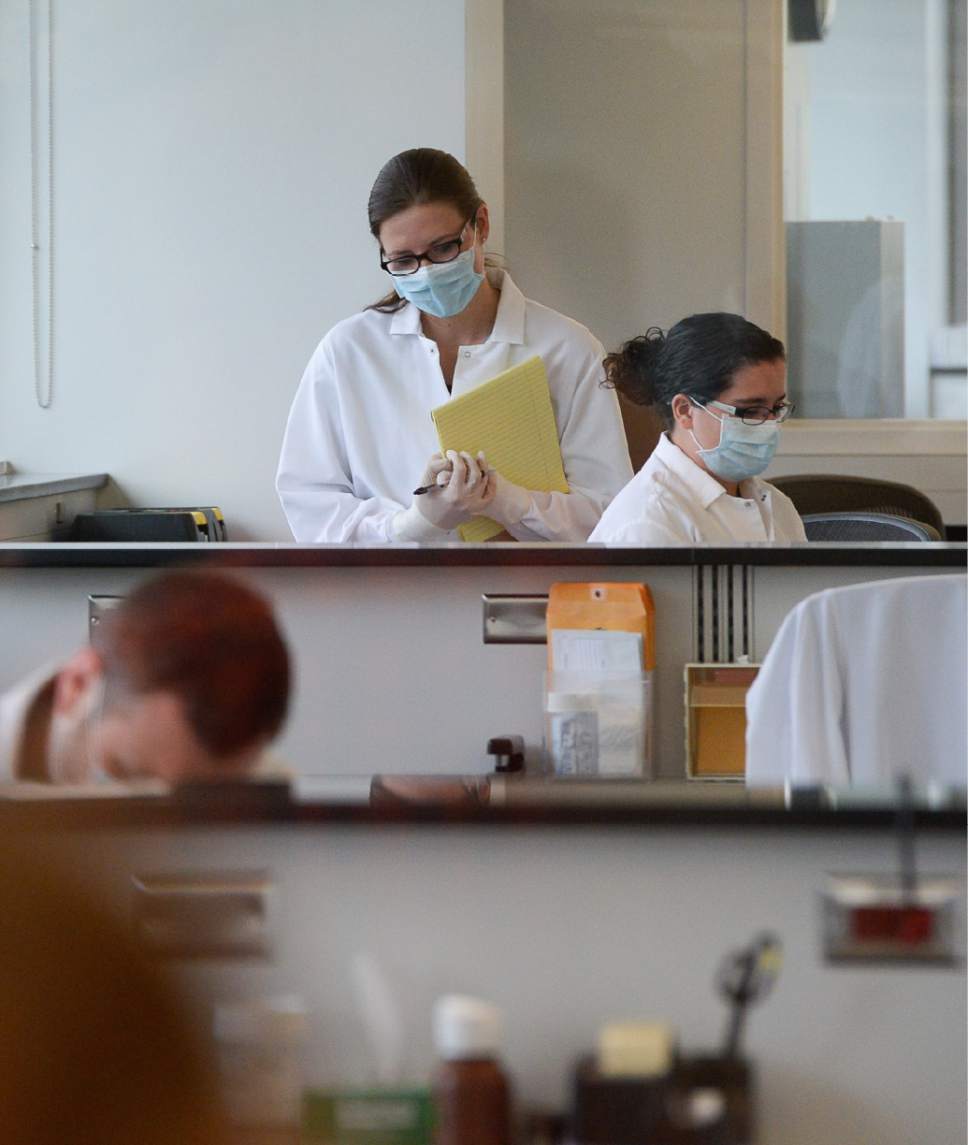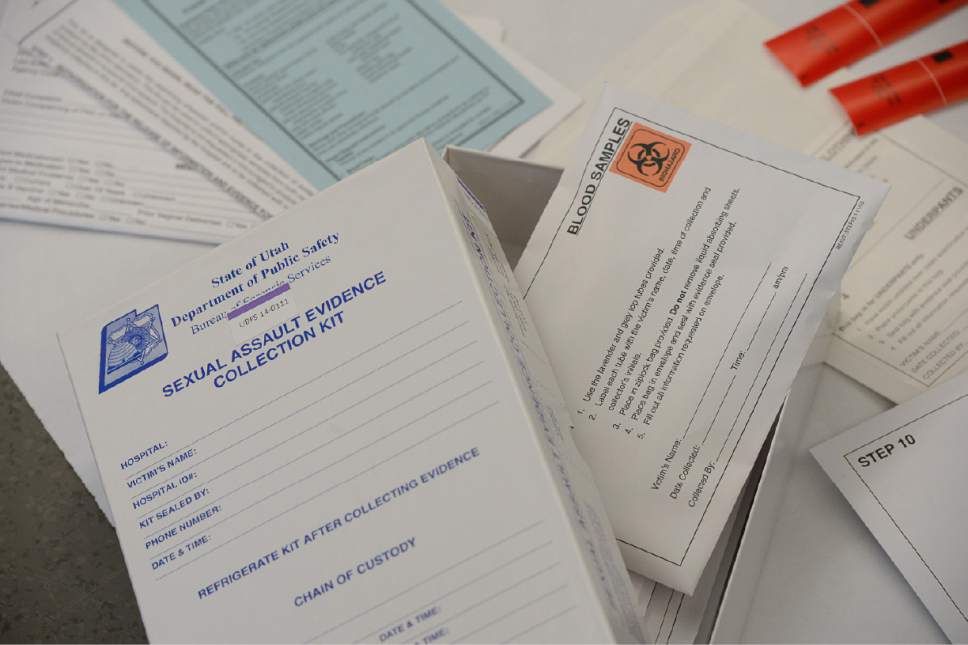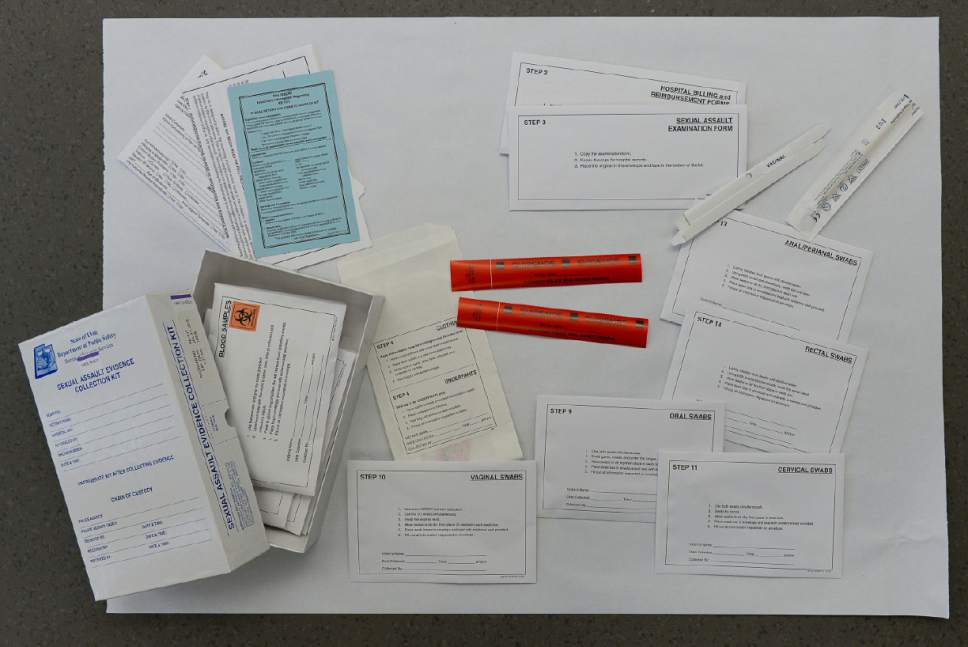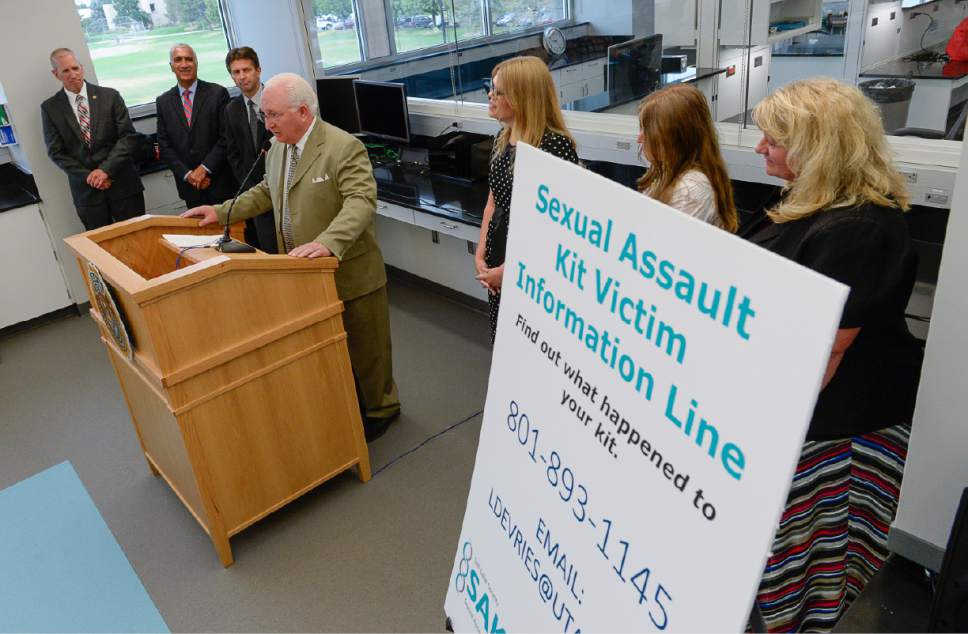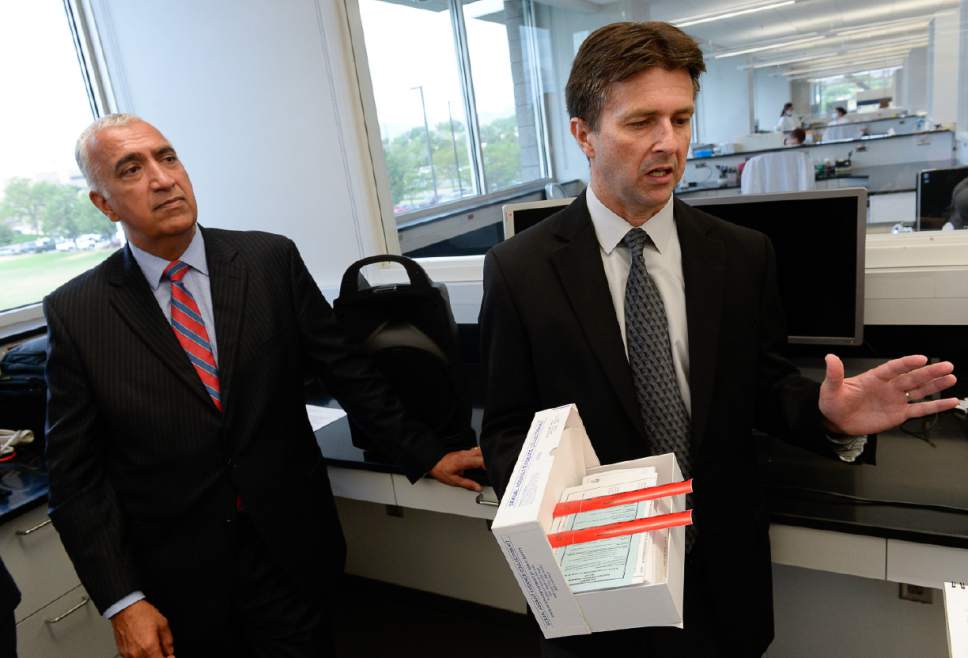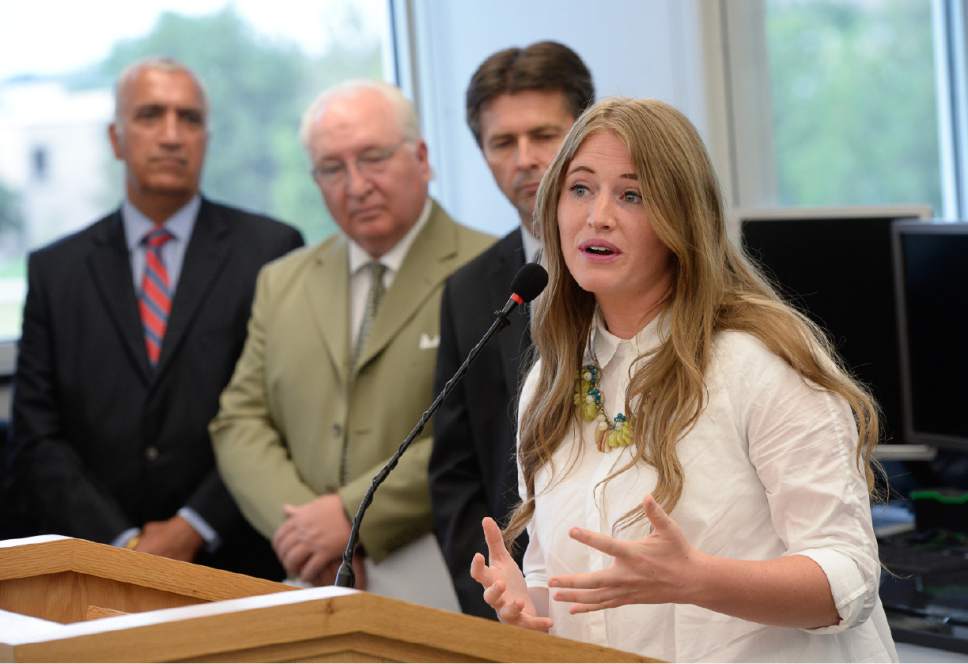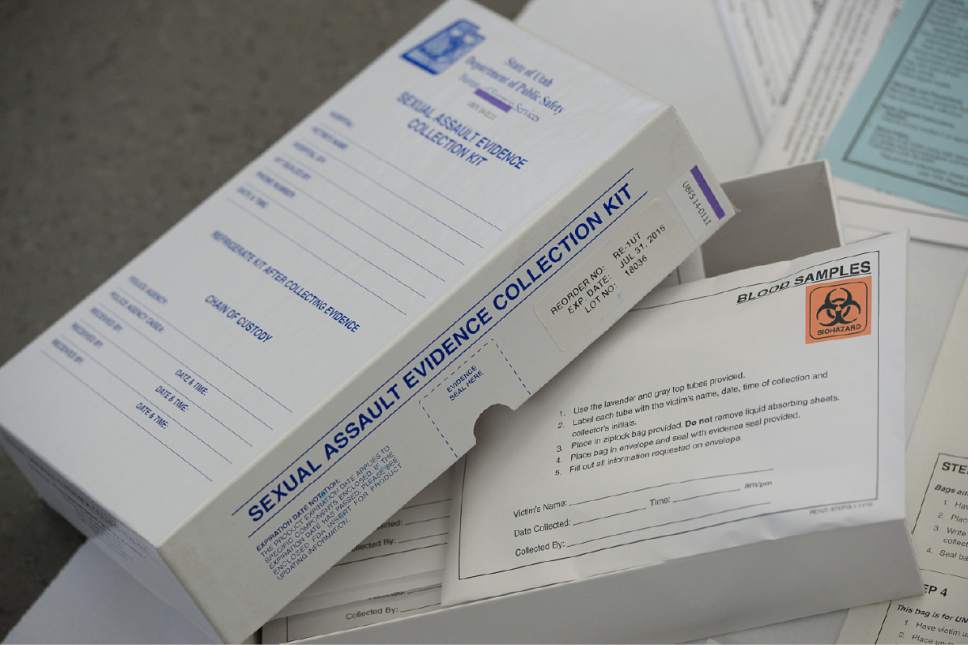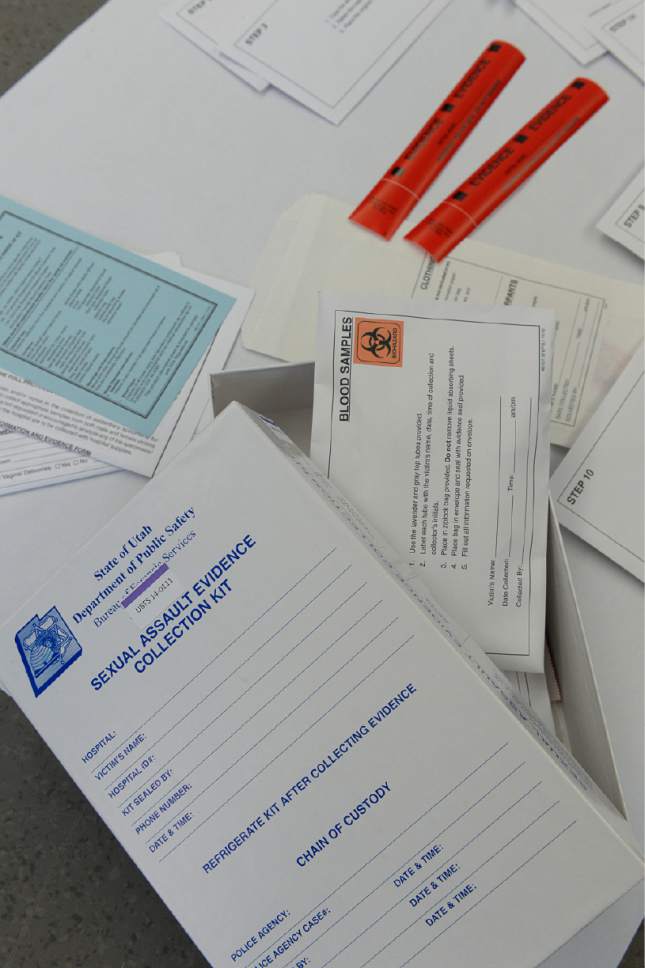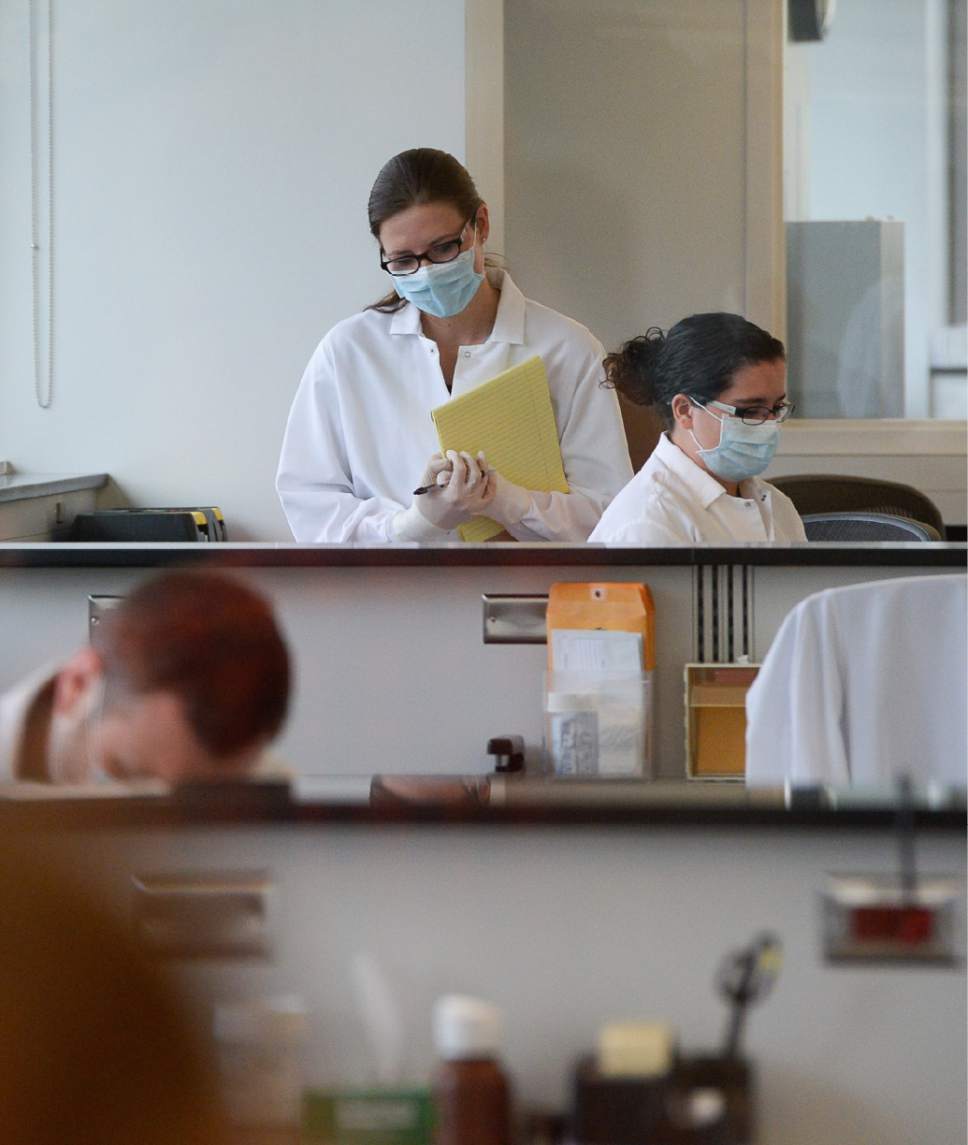Francisco Kjolseth | The Salt Lake Tribune
Utah's Commissioner of Public Safety Keith Squires says a few words during the introduc
Francisco Kjolseth | The Salt Lake Tribune
Salt Lake County District Attorney Sim Gill discusses the positive outcomes with the in
Francisco Kjolseth | The Salt Lake Tribune
Technicians process rape kits in the screening area of the DPS Crime Lab in Taylorsvi
Francisco Kjolseth | The Salt Lake Tribune
A sexual assault evidence collection kit is displayed as the Sexual Assault Kit Initiat
Francisco Kjolseth | The Salt Lake Tribune
A sexual assault evidence collection kit is displayed as the Sexual Assault Kit Initiat
Francisco Kjolseth | The Salt Lake Tribune
The Sexual Assault Kit Initiative (SAKI) group and the new information line are introdu
Francisco Kjolseth | The Salt Lake Tribune
Salt Lake County District Attorney Sim Gill, left, and DPS Crime Lab director Jay Henry
Francisco Kjolseth | The Salt Lake Tribune
Lauren Devries, the new point of contact for the Sexual Assault Kit Initiative (SAKI) g
Francisco Kjolseth | The Salt Lake Tribune
A sexual assault evidence collection kit is displayed as the Sexual Assault Kit Initiat
Francisco Kjolseth | The Salt Lake Tribune
A sexual assault evidence collection kit is displayed as the Sexual Assault Kit Initiat
Francisco Kjolseth | The Salt Lake Tribune
Technicians process rape kits in the screening area of the DPS Crime Lab in Taylorsvill
Francisco Kjolseth | The Salt Lake Tribune
Utah's Commissioner of Public Safety Keith Squires says a few words during the introduction of the Sexual Assault Kit Initiative (SAKI) group during a press conference on July 19, 2017 at the DPS Crime Lab in Taylorsville. The Commission on Criminal and Juvenile Justice (CCJJ) and the Utah Department of Public Safety (DPS) have established a group dedicated to pursuing justice for victims of sexual assault. That group includes a new victim advocate who will be the point of contact for victims seeking resources and the status of their sexual assault kit. A new information line has been set up for victims to connect directly to a victim advocate.
Francisco Kjolseth | The Salt Lake Tribune
Salt Lake County District Attorney Sim Gill discusses the positive outcomes with the introduction of the Sexual Assault Kit Initiative (SAKI) during a press conference on July 19, 2017 at the DPS Crime Lab in Taylorsville. The Commission on Criminal and Juvenile Justice (CCJJ) and the Utah Department of Public Safety (DPS) have established a group dedicated to pursuing justice for victims of sexual assault. That group includes a new victim advocate who will be the point of contact for victims seeking resources and the status of their sexual assault kit. A new information line has been set up for victims to connect directly to a victim advocate.
Francisco Kjolseth | The Salt Lake Tribune
Technicians process rape kits in the screening area of the DPS Crime Lab in Taylorsville. The Sexual Assault Kit Initiative (SAKI) group and the new information line were introduced for the first time to the public at a press conference on Wednesday.
Francisco Kjolseth | The Salt Lake Tribune
A sexual assault evidence collection kit is displayed as the Sexual Assault Kit Initiative (SAKI) group and a new information line are introduced to the public at a press conference on July 19, 2017 at the DPS Crime Lab in Taylorsville. The Commission on Criminal and Juvenile Justice (CCJJ) and the Utah Department of Public Safety (DPS) have established a group dedicated to pursuing justice for victims of sexual assault. That group includes a new victim advocate who will be the point of contact for victims seeking resources and the status of their sexual assault kit. A new information line has been set up for victims to connect directly to a victim advocate.
Francisco Kjolseth | The Salt Lake Tribune
A sexual assault evidence collection kit is displayed as the Sexual Assault Kit Initiative (SAKI) group and a new information line are introduced to the public at a press conference on July 19, 2017 at the DPS Crime Lab in Taylorsville. The Commission on Criminal and Juvenile Justice (CCJJ) and the Utah Department of Public Safety (DPS) have established a group dedicated to pursuing justice for victims of sexual assault. That group includes a new victim advocate who will be the point of contact for victims seeking resources and the status of their sexual assault kit. A new information line has been set up for victims to connect directly to a victim advocate.
Francisco Kjolseth | The Salt Lake Tribune
The Sexual Assault Kit Initiative (SAKI) group and the new information line are introduced for the first time to the public at a press conference on July 19, 2017 at the DPS Crime Lab in Taylorsville. The Commission on Criminal and Juvenile Justice (CCJJ) and the Utah Department of Public Safety (DPS) have established a group dedicated to pursuing justice for victims of sexual assault. That group includes a new victim advocate who will be the point of contact for victims seeking resources and the status of their sexual assault kit. A new information line has been set up for victims to connect directly to a victim advocate.
Francisco Kjolseth | The Salt Lake Tribune
Salt Lake County District Attorney Sim Gill, left, and DPS Crime Lab director Jay Henry talk about the strides made in processing rape kits like the one Henry was holding following a news conference that introduced the Sexual Assault Kit Initiative (SAKI) group. The Commission on Criminal and Juvenile Justice and the Utah Department of Public Safety have established a group dedicated to pursuing justice for victims of sexual assault. That group includes a new victim advocate who will be the point of contact for victims seeking resources and the status of their sexual assault kit.
Francisco Kjolseth | The Salt Lake Tribune
Lauren Devries, the new point of contact for the Sexual Assault Kit Initiative (SAKI) group introduces the new information line during a press conference on July 19, 2017 at the DPS Crime Lab in Taylorsville. The Commission on Criminal and Juvenile Justice (CCJJ) and the Utah Department of Public Safety (DPS) have established a group dedicated to pursuing justice for victims of sexual assault. A new information line has been set up for victims to connect directly to a victim advocate.
Francisco Kjolseth | The Salt Lake Tribune
A sexual assault evidence collection kit is displayed as the Sexual Assault Kit Initiative (SAKI) group and a new information line are introduced to the public at a press conference on July 19, 2017 at the DPS Crime Lab in Taylorsville. The Commission on Criminal and Juvenile Justice (CCJJ) and the Utah Department of Public Safety (DPS) have established a group dedicated to pursuing justice for victims of sexual assault. That group includes a new victim advocate who will be the point of contact for victims seeking resources and the status of their sexual assault kit. A new information line has been set up for victims to connect directly to a victim advocate.
Francisco Kjolseth | The Salt Lake Tribune
A sexual assault evidence collection kit is displayed as the Sexual Assault Kit Initiative (SAKI) group and a new information line are introduced to the public at a press conference on July 19, 2017 at the DPS Crime Lab in Taylorsville. The Commission on Criminal and Juvenile Justice (CCJJ) and the Utah Department of Public Safety (DPS) have established a group dedicated to pursuing justice for victims of sexual assault. That group includes a new victim advocate who will be the point of contact for victims seeking resources and the status of their sexual assault kit. A new information line has been set up for victims to connect directly to a victim advocate.
Francisco Kjolseth | The Salt Lake Tribune
Technicians process rape kits in the screening area of the DPS Crime Lab in Taylorsville. The Sexual Assault Kit Initiative (SAKI) group and the new information line were introduced for the first time to the public at a press conference on July 19, 2017.


